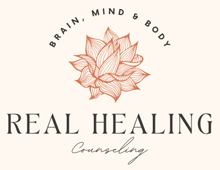The abandonment wound shows up as a deep thirst for connection and a deep fear that we will be left.
What comes to mind when you imagine abandonment?
I used to think abandonment was being left on a doorstep by your parents never to be seen again or having one parent leave in the middle of the night without saying goodbye.
I have learned that there are so many ways of experiencing abandonment that often go unseen or unidentified because they are more covert or not so obvious.
Examples of covert abandonment include
-
not being protected by a parent
-
having an alcoholic, addicted or emotionally immature parent
-
not having your needs met as a child. This includes not only our physical needs but also our emotional, spiritual or educational needs.
-
being a parentified child or “the good kid” or “the hero”
-
being enmeshed with a parent since this is a parent using a child and it is not about the needs of the child as much as it is about the parent getting their needs met.
-
a parent or loved one passing away
-
a parent who does not have the capacity to parent in a healthy way that you need or want.
& the list goes on..
These experiences of abandonment, whether covert or overt (meaning obvious or hidden), give us the message that there is something wrong with us. It gives us the message that we are not important enough or worthy enough to be loved and protected.
The traumatic impact of the abandonment wound continues to show up through shame, a deep feeling that there is something wrong with us. This impacts our ability to be intimate and vulnerable, which in turn impacts our ability to feel and be connected.
The abandonment wound shows up as a deep thirst for connection and a deep fear that we will be left.
Our need for love is so profound that we are willing to self-neglect, self-abandon, people please or tolerate mistreatment for the sake of the relationship.
It is possible to heal the trauma of the abandonment wound and love on that child who was deeply hurt.

